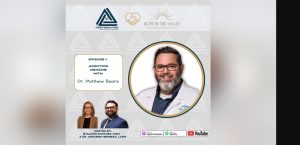Get the Medical Treatment You Need, Regardless of Your Ability to Pay
Our Infectious Disease services provide expert care for complex infections, with a focus on comprehensive management, prevention, and education. For individuals with HIV/AIDS, we offer personalized antiretroviral therapy, along with prevention options like pre-exposure prophylaxis (PrEP) and post-exposure prophylaxis (PEP) to reduce the risk of transmission.
We specialize in diagnosing and treating Hepatitis B and C, guiding patients through effective treatment plans to manage and potentially cure these conditions. Tuberculosis (TB) care includes monitoring for both active and latent TB infections, ensuring thorough and effective treatment.
Our team also addresses recurrent or resistant bacterial infections with innovative solutions tailored to patient needs. Additionally, we provide care for fungal and parasitic infections, delivering advanced treatments to resolve these challenging conditions. Through compassionate care and expert guidance, we aim to support every patient’s journey toward better health.
FAQs
What Is Infectious Disease?
Bacteria, viruses, fungi, and parasites can all cause infectious diseases. According to the World Health Organization, about 25% of all deaths worldwide are caused by these invisible, infectious organisms, many of them children. While some infectious diseases are spread from person to person, others are transmitted by animals or insects. Although these infections are usually treatable and harmless in the long run, some may cause death without prompt treatment. Signs and symptoms of infectious disease vary depending on the type you have but often include fever and fatigue. While some mild viruses like the common cold usually respond well to rest and home remedies, others, like measles, are life-threatening and require hospitalization and continuous care.
How Are Infectious Diseases Transmitted?
The most likely way to catch an infectious disease is to contact another person who is infected through direct transfer of germs like bacteria, fungi, parasites, or viruses.
What Are Common Symptoms of Infectious Diseases?
Common symptoms of infectious disease include:
- Unexplained, prolonged high fever
- Diarrhea
- Fatigue
- Cramps and achiness
- Coughing
- Shortness of breath
- Persistent cough
- Rash or swelling
- Sudden changes in eyesight
How Do I Prevent Spreading an Infectious Disease?
- Wash your hands thoroughly and often to help protect yourself from some conditions, because many infections linger on surfaces, such as doorknobs, for anywhere between a few minutes and several months.
- Disinfect frequently touched things, such as the computer keyboard and mouse, light switch, TV remote control, or even the pedestrian crossing button at traffic lights.
- Do not share your personal hygiene items, such as toothbrushes, towels, razors, manicure scissors, and brushes.
- Cover your mouth or sneeze into the crook of your elbow so that the germs cannot be spread through the air. If you do sneeze in your hand, make sure to wash it directly afterward, as your germs can be transmitted to other surfaces.
- Practice safe sex and use condoms every time so you can keep yourself from transferring infectious bacteria or viruses from one partner to the other.
- The most important way you can prevent infection is vaccination. Although not all infections have a vaccine, these immunizations can protect yourself and those around you.
Our infectious disease experts in Kern County are here to help. Call (833) 678-2781 for further information about how we can help you recover and stay healthy.



